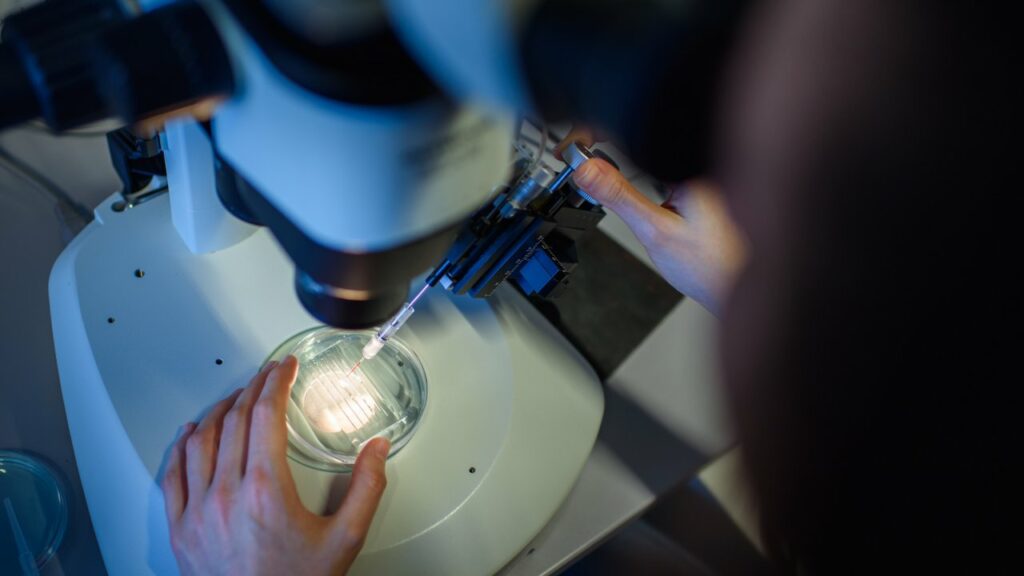Belgium approved a draft law to enable new DNA techniques to be used in criminal investigations by providing a legal framework for familial searches – the tracing of suspects through known DNA profiles of close family members.
Today, the national DNA databases (for convicted and missing people, suspects and traces) have some 120,000 unique DNA profiles. Belgium also has access to the DNA databases of 23 different countries, as laid down in the Prüm Treaty – involving several million profiles.
"Our DNA legislation is outdated," said Federal Justice Minister Vincent Van Quickenborne in a press release. "There are new techniques that can force breakthroughs in investigations, but investigators come up against legal barriers. Therefore, with this bill, we provide a legal basis for identifying suspects via the DNA of their close relatives."
If genetic material is found as a result of a crime or disappearance, a sample is analysed and compared with the profiles in these databases. While only direct matches (between trace and suspect) can legally be made, it is technically also possible to identify a suspect on the basis of a partial match with the DNA profile of family members, the so-called familial search.
Only first-line searches
This is because a partial match may indicate a direct familial link: if the DNA profile of a close relative is in one of the databases, this could provide a breakthrough in the investigation. Currently, however, such familial searches are not legally allowed.
Therefore, Van Quickenborne, in close consultation with the National Institute of Criminology and Criminalistics (NICC) and the Federal Public Prosecutor's Office, worked out a draft law that would enable these searches to give the Justice Department more clout in investigations into murders or sexual offences, for example.
Importantly, the familial search can be used to help track down a suspect, but can obviously never serve as sole evidence: it should help investigators on their way to then gather further evidence through traditional investigation methods. Additionally, while DNA can be compared with profiles already included in the available databases, no one can be obliged to give DNA as part of a familial search.
On top of that, only first-line searches may be conducted – meaning parents, children and siblings – and only the magistrate in charge of the investigation can order such a search, after direct comparisons yield no results.

Credit: Belga
Another element of the DNA legislation reform focuses on disappearance cases and will allow DNA from relatives of missing persons or unidentified remains to be linked to DNA profiles in European and international databases, such as Interpol's I-Familia.
This database contains nearly 10,000 DNA profiles of unidentified bodies and more than 1,000 DNA profiles of relatives of missing persons from around the world. The connection to I-Familia will be crucial in solving disappearance cases as automatic searches and comparisons can now be much broader. "Possibly, this connection will lead to relatives of disappeared persons finally getting long-awaited answers to their questions after years in limbo," Van Quickenborne said.
The draft law also elaborates a framework for Y-chromosome-based investigation technique. From now on, profiling of Y-chromosomes in sex offence cases will be mandatory, as will storing them in a database – making Belgium one of the first countries with such a system.
Related News
- Lift mandatory anonymity of sperm donors, says ethics council
- Belgian serial killer sent to court for murders in the 1990s
- Interpol develops family DNA database to identify missing persons
Y chromosomes occur only in men and are nearly-identically transmitted from father to son. These profiles are particularly important in sexual offences where it is often necessary to distinguish the offender's DNA from that of the victim. Introducing this database will also make it easier to detect repeat offenders.
In light of the ever-improving investigative techniques and the fight against sexual violence, it is also becoming necessary to retain not only DNA profiles but also the DNA samples themselves for a much longer time. Therefore, the draft law provides for this retention period to be increased from six months to 30 years, by analogy with the retention period for trace DNA samples.
On Friday, this entire bill was approved at first reading at the Council of Ministers and will now be transmitted to the Council of State and the Data Protection Authority for opinions. Then, the bill – subject to any amendments following the opinions – will be submitted to parliament for a vote.

